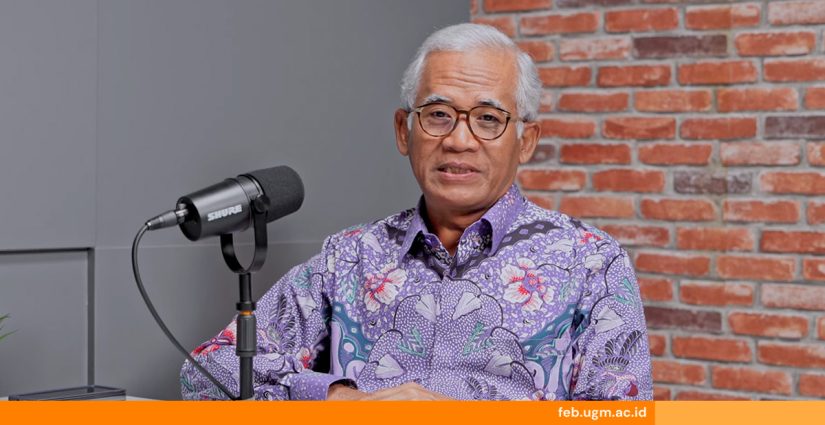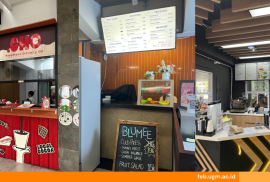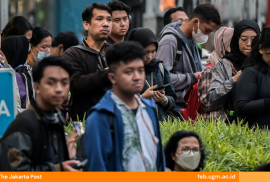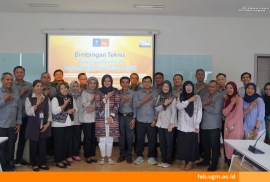
As technology and industrialization continue to advance rapidly, the needs of the labor market have become increasingly diverse and specific. This condition has rendered formal education alone insufficient as a foundation for competing in the workforce. To meet these growing demands, various short-term training programs, both in soft and hard skills, as well as certification programs have emerged to equip learners with additional, relevant competencies. In the field of education, this trend is known as micro-credentials.
In an episode of the FEB Podcast on FEB UGM’s official YouTube channel titled “The Direction of Higher Education in the Era of Micro-Credentials,” Prof. Dr.rer.soc. R. Agus Sartono, MBA, Professor and Lecturer at the Department of Management, Faculty of Economics and Business, Universitas Gadjah Mada (FEB UGM), discussed in depth the growing phenomenon of micro-credentials in Indonesia.
Prof. Agus explained that micro-credentials differ from formal, tiered education systems such as high school or university. While formal education focuses on academic progression, micro-credentials emphasize competency-based recognition, specific skills directly demanded by industry, which can be acquired in a relatively short time. The goal is to ensure that learners are better prepared and more reliable when entering the workforce, as they already possess skills that are genuinely relevant to the job market. Examples of micro-credential programs include short courses, online training, Massive Open Online Courses (MOOCs), and professional education programs.
“Micro-credentials are essential because of the increasing demands from industry. These programs are not only used for upskilling but also reskilling, while complementing the competencies gained through formal education,” explained Prof. Agus.
Furthermore, he highlighted the importance of capacity building among educators to support the development of micro-credentials. According to him, lecturers should not limit themselves to reading textbooks and delivering theories in class. They also need to understand real-world conditions, for instance, by engaging in business consulting projects, so that their firsthand experiences can be shared with students. Educational institutions can also involve practitioners as guest lecturers or contributors in curriculum design, ensuring that the learning materials remain relevant to industry needs. In this digital era, lecturers can even take advantage of numerous videos and examples of real business practices available online to enrich the learning process. Thus, both educators and institutions can maximize students’ potential, not only through micro-credentials but also through contextual learning.
Despite its promising potential, the development of micro-credentials in Indonesia still faces several challenges, including the rapid pace of technological advancement, unequal access to education, and affordability issues. This is particularly significant given the emergence of new technologies, such as artificial intelligence (AI), which requires educational institutions to become more adaptable in updating their curricula and pedagogical approaches.
Prof. Agus emphasized that micro-credentials should serve as a complement to formal education. Drawing from his experience at the Ministry of Education, he noted that short training programs have proven effective in reducing unemployment rates in Indonesia. Therefore, he continues to advocate for the revitalization of vocational education, which includes the development of micro-credentials, as it has shown a significant impact on Indonesian society. One concrete example is the Kartu Prakerja program, which aims to enhance participants’ competencies, enabling them to re-enter the workforce or become self-employed entrepreneurs.
However, he also reminded that to achieve meaningful outcomes for society, higher education institutions must not be driven solely by financial gain. The main goal should be to provide tangible benefits that can enhance participants’ quality of life and productivity in the long term.
“The government has allocated substantial funding for training, reskilling, and upskilling programs to boost productivity. I am confident that UGM can also take part in this effort,” he remarked.
Ultimately, micro-credentials are part of the broader concept of lifelong learning, which encourages individuals to acquire new knowledge and adapt to changing times continually. Nevertheless, students must still possess a strong foundation of core competencies—those built through their academic journey in higher education. Finally, Prof. Agus underscored the importance of strong character and integrity as essential complements to scholarly knowledge.
“Education is a form of social engineering that not only builds competence but also shapes character. Through various approaches, educational institutions must be able to instill these values, whether through courses or additional programs,” he concluded.
The full video can be accessed via the link http://ugm.id/ArahPendidikanTinggidiEraMicrocredential
Writer: Najwah Ariella Puteri
Source: Laman YouTube FEB UGM
Sustainable Development Goals









